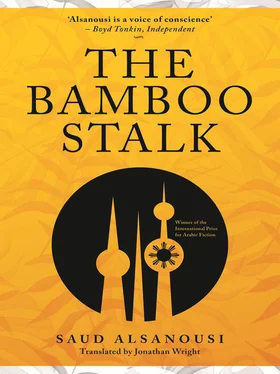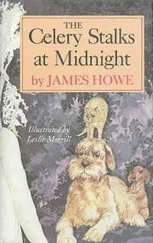As soon as we three — my father and mother and I — were out of hospital, my father drove to his mother’s house. When we arrived my father asked my mother to stay where she was in the car, because his mother might not be able to handle the sight of her just then, whereas her grandson, me that is, might make it possible for her to accept my mother as time passed. My mother waited in the car while my father carried me in to his mother.
My father tried to open the front door but his mother had changed the locks so that he couldn’t come in if he ever thought of coming back. When he rang the bell a new Indian maid opened the door. He spoke with her a while, then pushed the door to go in and disappeared out of sight of my mother. A few minutes later my mother saw a car drive up to my grandmother’s house. She lay low in her seat so that no one would see her. The car stopped at the kerb outside the house and four women got out. One of them rang the bell and the servant opened the door. It didn’t take long. As soon as they disappeared behind the door, the garage door at the side of the house opened and my father appeared, carrying me in his arms and heading for the car in silence.
‘Your father changed after he visited the old lady’s house,’ my mother said with a sad look. ‘He didn’t speak much and he was always thinking about something. He spent more time reading and writing. I tried to persuade him to go out boating several times but he always refused. He said Ghassan and Walid were busy getting ready for a trip abroad. I begged him to go abroad with them but he refused.
‘Two days after you were born, they did go abroad, but if only they hadn’t!
‘Ghassan and Walid were passengers aboard the Kuwaiti plane that was hijacked by a pro-Iranian extremist group on its way to Thailand. Your father went crazy. He was glued to the television screen most of the time. If he wasn’t watching television, he was reading the newspapers or calling his remaining friends in search of news, but all they knew was the same as the news on television. Things got worse. Two of the passengers were killed and people were horrified. Your father broke down when he saw television pictures of the body of one of the passengers being thrown from the plane door at Larnaca airport. He wept his heart out when an ambulance took the body away from under the plane. I’ll never forget how Rashid looked when he heard the news. He started beating his chest with his fist and shouted, “They didn’t kill him. It was us who did it. It was us who did it. We shouldn’t have supported Iraq.” I don’t understand, even now, how someone could cry with such feeling over the death of someone he’d never met, and how someone could accuse himself of committing a murder when he hadn’t done it.
‘After that there were rumours that a third Kuwaiti had been killed, but it wasn’t officially confirmed. Rashid followed the news. Through friends who worked in the newspapers and television, he confirmed it was true. Someone had died on the plane after being hit. He had had a fit and his condition had deteriorated. Without medical attention he had died of a heart attack.
‘It was Walid. Fear of flying hadn’t killed him but it may have played a part. Your father sobbed and sobbed. All I could do was fall on the floor and grieve for my husband and his friend, but I couldn’t do anything about it.
‘After Walid’s death, the old lady agreed for the first time to have contact with your father by telephone. “I didn’t really want to speak to you, but I just wanted to let you know that you’re in for a run of bad luck. Look what happened to your friend after that horrible thing was born. It’s a curse, like its mother,” she told him.
‘Your father bit his lip and floods of tears rolled down his cheeks. “Throw them out and see how your luck changes,” his mother concluded. “Then come home and you’ll find I have a mother’s heart and I’ve forgiven you the horrible thing you’ve done.”
‘My grandmother hung up. Rashid bowed his head. With the receiver still in his hand, fighting back his tears, he said, “My mother says. .”
As soon as my father had arranged a birth certificate for me, with the name Isa, he contacted a travel agency and asked them to book a seat on any plane going to Manila, so long as it wasn’t on Kuwaiti Airways.
A few days later I made my second move, but this time it was from my father’s country to my mother’s country.
PART 2. Isa. . After His Birth
‘He who does not know how to look back at where he came from will never get to his destination.’
José Rizal
1
From Kuwait we flew to the Philippines to live in the land of my grandfather, from whom I took the name José Mendoza. Mendoza was really my grandfather’s family name but people often called him by that name alone.
I grew up on a piece of land of no more than 2,000 square metres in Valenzuela City in northern Manila. There were three small houses there, one of which, the largest of the three, had two storeys. That was where we lived, piled on top of each other — my mother and I, Aunt Aida and Merla, Uncle Pedro and his wife and their children. Another house, which was very small and separated from the larger house by a watercourse a metre wide, was where Grandfather Mendoza lived. The watercourse between the two houses was not a stream or a branch of a river, but rather a drain where waste water collected along with our rubbish, which made the smell unbearable, especially on humid days.
Far from those two houses, in a corner overlooking the road and under a giant mango tree, stood the third house, which was made of bamboo stalks and was the smallest of the three. My grandfather had built it many years earlier for a poor, single woman called Choleng. We didn’t know where she’d come from. Before she came to live near us her only home was the pavement. We didn’t know anything about her but her name, to which we added the title inang , or ‘mother’, out of respect for her age. His decision to let her stay on his land for free was one of the paradoxes about my grandfather, who was usually greedy and mean. She was very old. The way she looked frightened the neighbourhood children. Her back was hunched and she had a grey moustache. The white hair on her head covered only bits and pieces of her scalp; the rest of her scalp had sores and red patches. Children made up frightening myths about her, which made it impossible to walk past her house, especially after dark. Inang Choleng was the local witch. She ate children and would never die, they said.
The empty spaces around the three houses were planted with trees — mangoes, bananas, guavas, papaya and jackfruit — and the land was surrounded on all sides by stands of bamboo that formed a high wall.
Shortly before my mother came back from Kuwait my family’s financial position had improved a little. They would have been able to live better if Mendoza hadn’t been so reckless and wasn’t addicted to betting on cockfights. Addiction doesn’t just apply to drugs: gambling and betting ran in his blood. My grandfather, Aunt Aida and Merla, and even Uncle Pedro and his family, had basically depended on the money my mother sent at the end of each month when she was working as a maid, and their situation improved greatly when she had paid off the money owed to the Indian moneylenders and started sending all her salary. This meant my grandfather could buy a fridge, because Aida had asked for one and he was frightened of her, though most of the time the fridge had no food in it.
My mother relayed Pedro’s account of the event. ‘I wish you had been here,’ he said. ‘The welcome ceremonies when the fridge arrived were amazing! It was like we were welcoming a warship home from victory in battle. All the men, women and children in the neighbourhood gathered around the house to watch the workers carry the fridge from the company truck to inside the house. It was a wonderful feeling, Josephine!’
Читать дальше












